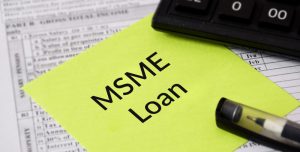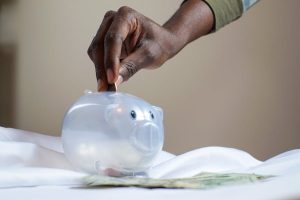How to Cultivate Safe Money Habits

Whether you’re a millionaire or a struggling college student, safeguarding the money you have is an important skill that you can learn to hone over time.
It seems like every finance guru has a differing opinion on how to build wealth, from managing credit cards to investing in the stock market. However, there are some money moves that ring true for everyone, everywhere. Get yourself in the habit of practicing these penny-saving practices so you can start building your net worth overnight.
Use Cash to Pay for Purchases
In the age of digital payments and credit cards, it might seem strange to use cash to pay for all of your day-to-day purchases. But when you see a cold, hard $20 bill leave your hand to buy an impulse purchase, you might think twice about shelling out cash willy-nilly. When you can’t see the physical amount of money that you’re spending, it’s easy to get lost in debt. Not only does ditching the plastic help you be more conscious about your spending, but it also protects you from fraud. Without a credit card number and PIN to steal, you are more likely to keep the money in your account safe from sticky fingers.
Start Saving with an App
Saving for the future can be intimidating, but luckily the 21st century has found a solution: smartphone apps. There are dozens of money saving apps that can be downloaded for free or for a one-time small fee. They range in complexity and features, but the best apps help you put money away for a rainy day. Apps like Albert assess your current spending habits and automatically find spare change to stow away in a savings account. This requires no effort on your part, and you end up with a chunk of change to spend whenever you need to make an emergency purchase.
Learn to Spot Tax Scams
Knowing how to properly do your taxes so you receive a hefty return is a major skill. For now, just focus on making sure you don’t end up paying more taxes than you need to. During tax season, it’s common to get a phone call or email from someone claiming to be the IRS saying that you will go to jail if you don’t pay the outstanding money you owe. These are completely phony since the IRS typically only contacts taxpayers through the mail. IRS scammer phone numbers will typically pop up on your phone as a legitimate number, but it’s easy to spot fraud if:
- They threaten immediate legal action
- They request immediate payment and personal information
- They do not provide their name and IRS employee ID number upon request
Never Auto-save Passwords
As more and more of our purchases are made online, it can be tempting to save your credit card number and personal information in the “auto-save” option that many web browsers offer. This means every time you need to fill out info to make a new purchase, your computer automatically populates the form with the correct info. Computer hackers are more advanced than ever and can easily steal your personal info if they gain access to your PC. Make sure you never auto-save sensitive information and always keep your malware security software up-to-date. While it might save you a minute or two during your online shopping spree, auto-save passwords could costs you thousands of dollars if that info gets into the wrong hands.
Keep it Organized
While this tip can certainly apply to all areas of your life, the key to cultivating safe money habits is to stay organized. Keep a binder, journal, or filing cabinet to store and track all your important financial endeavors. Credit card terms and conditions, new bank account information, receipts, and past tax filings should all be kept in one place. You never know when you might need to pull out this old paperwork, so finding an organizational system that works should be at the top of your to-do list.
We all live busy lives that make it easy to forget about creating a safe spending routine. Privacy is often sacrificed for efficiency, which can lead to many unpleasant monetary surprises. No matter what stage of life you’re in right now, take these financial tips to heart and start practicing safe money habits today.






